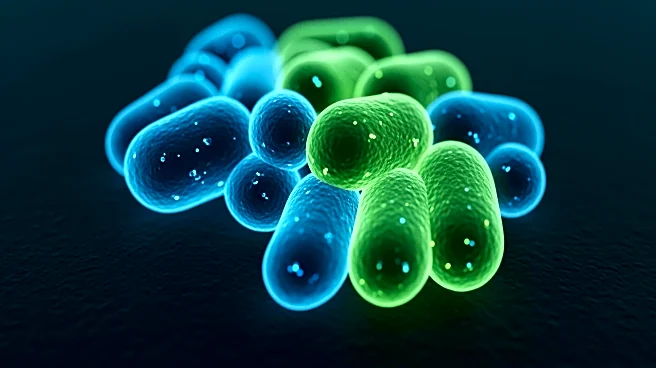What's Happening?
The International Union for Conservation of Nature (IUCN) has established the Microbial Conservation Specialist Group (MCSG) within its Species Survival Commission. Co-chaired by Professor Jack Gilbert and Raquel Peixoto, the group aims to safeguard microbial
biodiversity, which is considered the 'invisible 99% of life.' The coalition includes microbiologists, ecologists, legal experts, and Indigenous knowledge holders from over 30 countries. They have developed a microbial conservation roadmap to integrate microbiology into conservation policy, addressing soil fertility, carbon cycling, marine productivity, and ecosystem restoration.
Why It's Important?
Microbial biodiversity plays a crucial role in ecological systems, yet it is often overlooked in conservation policies. By embedding microbiology into IUCN's conservation efforts, the MCSG aims to enhance climate resilience, food security, and ecosystem restoration. This initiative represents a paradigm shift towards recognizing microbes as essential components of planetary health. The roadmap outlines strategies for microbial conservation, including ethical frameworks and restoration projects, which could significantly impact global conservation efforts.
What's Next?
The MCSG plans to develop the first Microbial Red List framework by 2027 and create global maps of microbial hotspots. They aim to test conservation strategies such as microbial bioremediation and soil carbon restoration. The group seeks to incorporate microbial indicators into IUCN and UN biodiversity targets by 2030. Sustained investment and integration of microbes into national biodiversity strategies are essential for long-term progress.
Beyond the Headlines
The initiative faces scientific and ethical challenges, such as defining microbial species and integrating genomic information into conservation systems. Addressing these challenges requires new definitions of 'loss,' 'restoration,' and 'rights of microbes.' The approval of the MCSG by the IUCN marks a significant milestone in extending global conservation efforts to include microbes.















